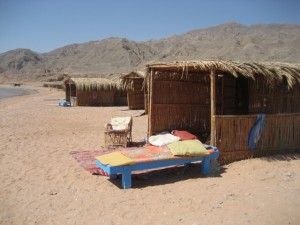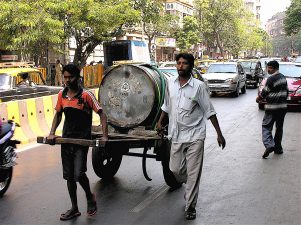
Eighteen months ago, Itzhak Ben-David, the Israeli Environment Ministry’s deputy director for enforcement, visited several Israeli army bases in the West Bank. What he saw was shocking. Fuel and oil were leaking unabated into the ground on several sites. In response, Ben-David asked the Israeli Defense Forces (IDF) to conduct water quality sampling and monitoring. Part of the Environment Ministry’s purview is ensuring soil and groundwater are protected from contaminants.
Months after Ben-David’s request, the IDF has done little to assuage the Environment Ministry’s concerns. Although water samples were collected, military officials have not made the results available. Recognizing the IDF’s apparent bureaucratic foot-dragging and indifference, Ben-David recently wrote to the Military Advocate General, Brig. Gen. Danny Efroni. He did not mince words: “A civilian polluter would have already been investigated by the ministry’s enforcement officials and long since been indicted, probably found guilty and made to pay a heavy fine.”
Ben-David also contacted Justice Minister Yaakov Neeman, who indicated that the IDF is in fact subject to fines for water quality violations, just as a civilian polluter would be. He cast aside the IDF’s claim that such a fine would simply move funds from one government agency to another.
Sadly, the fuel pumps on these bases have equipment to prevent leaks, according to the Environment Ministry, but human error and misuse have limited the technology’s effectiveness. This makes water quality testing absolutely necessary.
But the IDF may not be the only pollution culprit in the West Bank, according to a report by the International Red Cross and the Palestinian Wastewater Engineers Group, a non-governmental organization. Several Palestinian villages and Israeli Settlements release untreated sewage into surrounding streams. It ultimately flows into underground water sources, contaminating the Mountain Aquifer, which boasts the highest water quality in Palestine and Israel.
Another study, conducted over two years by the Arava Institute, the Blaustein Institute, and the Palestinian Water and Environmental Development Organization, identified similar issues. It found that the Basor River, which runs from Hebron in the West Bank to the Gaza Strip, is heavily contaminated. Toxins discharged from stone and leather working industries enter the river near Hebron. Anywhere from 45 to 90 percent of that pollution seeps into groundwater before the Basor reaches an Israeli treatment plant.
Pollution in the West Bank is a highly sensitive issue because it highlights the tensions between Palestinian residents and the Israeli government, which has controlled the area since 1967. A major complaint of Palestinians is that they don’t have access to clean water or modern treatment systems. Although Israel provides water treatment as a service to Palestinians, it is expensive and not always consistent.
One thing is certain: there is plenty of blame for all parties. In most parts of the world, access to clean water is considered a basic human right. In Israel, it means more. In this largely arid country where Jews and Muslims are deeply divided, it creates a balance of power. And as the aforementioned studies show, everything here is connected. What flows into one river will affect the village downstream, either in the West Bank or in Israel. What flows off one settlement will affect the neighboring Palestinian town, and vice versa.
The only legitimate water distribution system is one that ensures everyone has access to clean water. The only defensible regulatory system is one that treats all parties equally, whether Jewish settlement, Palestinian town, or Israeli government agency. And the time to act is now. With wells heavily polluted and groundwater quality declining daily, Israelis and Palestinians must seize the moment.
Hopefully the IDF will recognize its obligation to prevent large-scale pollution. It is in the interest of security as well as environmental protection. Clean water means human dignity. And peace will come only when that dignity materializes.
Image of army guarding oil by Shutterstock




Dear Joshua,
Please contact me.
Thanks
Ran